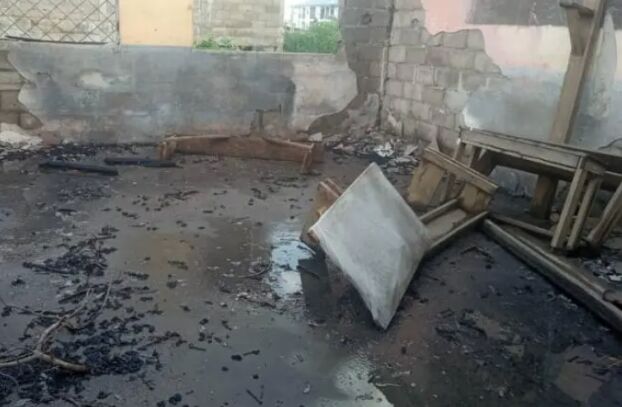Bloodshed and Betrayal: Gunmen Strike Again, Leaving Death and Destruction in English-Speaking Cameroon
Gunmen kill 10 and injure 2 civilians in an attack in Cameroon's English-speaking northwest region, highlighting the ongoing conflict and the urgent need for a comprehensive solution.
Gunmen have struck again in Cameroon's troubled English-speaking northwest region, leaving a trail of death and destruction in their wake. At least ten innocent individuals lost their lives while two others sustained injuries in the heart of Bamenda, a bustling city junction that was transformed into a blood-soaked crime scene on Sunday evening.
Eyewitnesses reported that the attackers, armed and relentless, arrived with a vengeance in their vehicles, targeting unsuspecting civilians with accusations of betrayal - a direct consequence of their alleged failure to support local separatist groups.
The Ambazonia Defense Forces (ADF), the prominent separatist faction operating in the English-speaking region, has been locked in a bitter struggle against the French-speaking government since 2017. The group, however, swiftly denied involvement in this heinous act of violence, further shrouding the incident in confusion.
In response to the shocking attack, the governor of the North West region immediately launched a manhunt and opened an investigation, vowing to bring the perpetrators to justice.
However, the road to justice may be plagued by the deep-rooted issues that initially ignited the unrest in this region. The anglophone and francophone communities in Cameroon have long suffered from discrepancies between their respective academic, legal, and administrative systems.
In 2016, these disparities reached boiling point, triggering widespread protests and riots. Unrest swiftly escalated as the government moved to suppress the dissent, creating a vicious cycle that has plunged the region into a full-blown conflict.
Tragically, the toll of this protracted conflict has been staggering. More than 6,000 lives have been claimed within the English-speaking regions, formerly known as Anglophone Cameroon, since the violent unrest began.
The region has become a hotbed of bloodshed, displacement, and despair for countless families who continue to endure the consequences of an unresolved crisis.
The latest attack in Bamenda serves as a stark reminder of the urgent need for a comprehensive solution that addresses the grievances of the English-speaking population in Cameroon.
The ongoing conflict has only deepened divisions and exacerbated the suffering of innocent civilians caught in the crossfire.
Efforts must be made to bridge the gap between the anglophone and francophone communities, fostering dialogue, understanding, and a shared vision of a united and inclusive Cameroon. It is only through sincere engagement, respect for human rights, and a willingness to address root causes that lasting peace can be achieved.
As investigations unfold, the international community must rally behind Cameroon, offering support and assistance to ensure a fair and transparent process. It is in the collective interest of all nations to promote peace, stability, and justice in regions plagued by violence and conflict.
By doing so, we can strive towards a future where tragic headlines like the attack in Bamenda become stories of the past, remnants of a time when division and violence once plagued a nation.




